Announcing the latest series of training programmes by EIT Manufacturing Co-Location Center (CLC) East in collaboration with the Vienna University of Technology (TU Wien) and local partners in different countries, we would like to answer some of the most frequently asked questions about the Collaborative Robot (Cobot) Technology and its application.
That is why we have asked Christina Schmidbauer, who led the EIT Manufacturing Project DeCoTe – Democratizing Cobot Technology, to tell us more about this latest technology in robotics and present the most important highlights of the upcoming training on the topic.
In this text, she will shortly answer the following questions:
- Democratization of Cobot Technology – What does that mean?
- What are cobots?
- Why is the democratization of this technology important?
Christina Schmidbauer:
First things first, the democratization of technology does not refer to democracy, but to the process of making that technology accessible to more and more people. This can be realized through e.g., intuitive user interfaces. However, if the usability of a technology is not very high, more training is necessary to learn how to use it.
But what are cobots?
Cobots are collaborative robotic arms, designed for interaction with human beings and mostly used in industry for applications such as assembly, inspection, kitting, joining, packing and pick & place. Cobots can assist human workers in their daily job by taking over tasks to increase
productivity and economic efficiency. Cobots can also carry out repetitive or harmful tasks and enhance the human factors and ergonomics of a workplace. These positive aspects are often mentioned in the research, but the true potential of the technology is not fully exploited.
This is already the answer to the question of why the democratization of cobots is important. It is also the reason why the EIT Manufacturing CLC East, together with the TU Wien experts and supported by local partners in several countries, decided to create a training that will enable people without any specific prior knowledge to use cobots for different purposes.
To explain the basics of the technology, the training combines specially developed digital learning nuggets with several on-site workshops at different locations in Europe. In 2021, we conducted 14 workshops and webinars at seven locations in five countries (Croatia, Greece, Latvia, Lithuania, and Slovakia) in the course of the EIT Manufacturing project DeCoTe – Democratizing Cobot Technology. In total, 164 participants learned about collaborative robots and how to use them in the manufacturing industry within just one day!
If you want to participate in one of the upcoming workshops, make sure to check the dates and locations in the EIT Manufacturing CLC East Marketplace.
About the training
The Manufacturing Cobot Technology Training is an educational programme of EIT Manufacturing and TU Wien. It aims to provide more information on cobot technology and its application in manufacturing. Together with local partners, such as FabLab in Sarajevo and the Faculty for Mechanical Engineering, University of Ljubljana, our experts will introduce participants to cobot technology, show how cobot programming works and how to use them in manufacturing. The trainers will also discuss concrete studies with the course participants and do a cobot simulation.
Students are eligible for a special 20% discount on the course fee. Upon completion of the training, participants will receive an Official Certificate of Completion.
Learn more about the EIT Manufacturing CLC East and the upcoming Cobot technology courses at the EIT Manufacturing CLC East Marketplace.
If you are interested in hosting a workshop at your location or want to know more about our trainings, feel free to reach out to us via support-east@eitmanufacturing.eu
About Christina Schmidbauer
Dr. Christina Schmidbauer obtained her PhD at the Institute of Management Sciences of the Vienna University of Technology (TU Wien) developing a method for adaptively sharing tasks between humans and collaborative robots (cobots) in assembly processes. She was also the project leader for the EIT Manufacturing project DeCoTe – Democratizing Cobot Technology.










